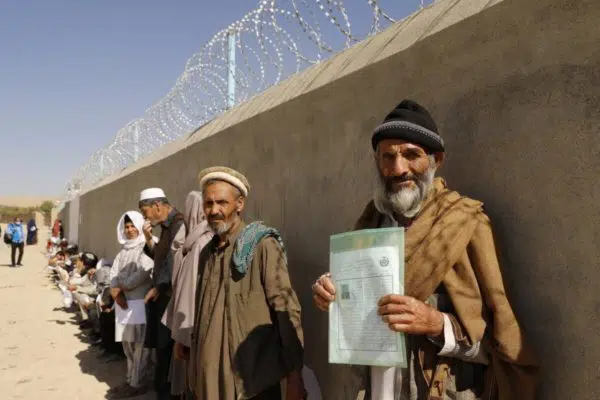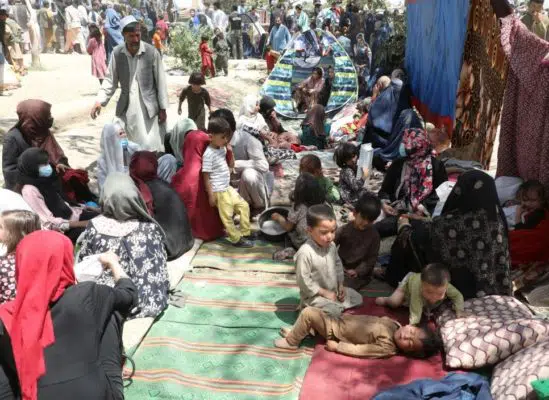
This is a summary of what was said by UNHCR spokesperson Babar Baloch – to whom quoted text may be attributed – at today’s press briefing at the Palais des Nations in Geneva.
UNHCR, the UN Refugee Agency, welcomes the recent announcement by Pakistani authorities to ease the movement of people and goods through official border points with Afghanistan. This follows reports of border disruptions that have affected trade and regular population movements, including Afghan civilians who may need to seek safety.
Disruptions have left many Afghans, including women, children and those needing urgent medical attention, stranded for weeks at the Chaman-Spin Boldak crossing between the two countries. This border has remained closed for the past three weeks.
The new steps help reduce fears and risks that many will be pushed into the hands of human smugglers and traffickers, with deadly consequences, when official cross-border channels are shut.
Nearly 700,000 Afghans have been internally displaced by the conflict this year – with some 3.5 million people in total uprooted throughout the country. An estimated 150,000 formerly displaced Afghans have also returned to their places of origin in 2021, but the situation inside the country remains dire.
Iran and Pakistan together host almost 90 per cent of all Afghan refugees worldwide and have been doing so for more than four decades. Increased international support is urgently needed to allow continued protection for more than 1.4 million registered Afghan refugees already in Pakistan, and nearly 800,000 in Iran. Both countries also host a large population of unregistered Afghans. UNHCR calls on Afghanistan’s neighbouring countries to continue extending protection for those seeking safety.
Inside Afghanistan, UNHCR continues to deliver much needed humanitarian assistance to displaced Afghans. Nearly half a million people have received UNHCR assistance so far this year including tents, emergency shelter kits, food rations, blankets, kitchen sets, stoves, solar panels, solar lanterns, insulation kits, cash for the most vulnerable and other aid items.
UNHCR is also arranging further airlifts of humanitarian supplies into Afghanistan in addition to the three flights that recently landed in Termez, Uzbekistan. As we continue to scale up our humanitarian response, more resources are urgently needed ahead of the harsh winter months.
In addition to emergency relief for the displaced, UNHCR also continues to work in communities where former refugees have returned by investing in infrastructure including, education, health, livelihoods and shelter.
UNHCR appeals to the international community to urgently increase financial contributions to displaced Afghans both within and outside the country, who remain extremely vulnerable and desperately require support to survive the coming winter.
Originally published by UNHCR on 26 October 2021





